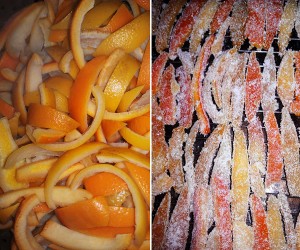
Julie here, with a warm greeting to you from beneath a blanket of fluffy white “wow, Ben is a tough act to follow”, er, I mean snow. As I am sitting here in my wood-heated house, I’m thinking, of course, about food; that fuel that your body burns in order to keep warm, nourished, and healthy.
I can’t help but always feel excited and thoughtful when the subject of food comes up, as it is a prerequisite to sustaining life, from the tiniest microscopic organism all the way up to the largest living animal, the Blue Whale. (Well, ok, there’s also the Honey mushroom, whose mycelia have been known to occupy up to 2200 acres, but you get the picture.) Universal necessities such as food connect us in a complex way that we still know very little about, considering the intricacies of nutrient flow.
How we choose to eat affects countless species in what is called a “food-web”, which is a flow-chart that illustrates the interconnected nature of how different species depend upon certain food sources for their nourishment, just as they provide food for some other creature or creatures. When we choose certain foods, such as seafood, we affect the food-web of the ocean. Declining populations of sharks are of particular concern, as they are an apex predator, which means that they are at the top of the food chain. As their numbers decrease, the populations of their now-uneaten prey increase, and put cascading stressors throughout the food-web, causing food shortages all the way down to the bottom of the food chain.
This brings me to emphasize the importance, at least for myself, of eating as locally and environmentally responsibly as I can, especially in the winter. It’s not always easy, but I do my best. I am an omnivore, and really enjoy eating meat as part of my diet. Of course, being choosy is a great motivator to find creative ways to get this need met.
We have been trapping and eating rabbit as of late, and when this tender meat is slow-cooked in my homemade chicken broth, and smothered in homemade BBQ sauce, it is quite delicious! Another source of meat for us is the free-range chicken we raise every year. We feed our birds with organic feed from a farmer a mile away, and add in duckweed, a tiny pond plant, for added protein. During the summer, we’ll joyfully take the canoe out into the pond every other day or so, and scoop up this free and prolific food source.
Being connected so closely to my food gives me great satisfaction, and every bite I take is a reminder of my invested efforts to create local protein. One other, albeit infrequent, source of meat is bacon from Mint Creek Farm in Stelle, Illinois. Their pigs are pastured, and the bacon is lean and smoked to perfection. This meat comes from a family farm, and I personally know one of the farmers, so it feels good to help support a farm whose practices are verifiably respectable. Dan and I are planning on raising a pig this year; I only wish that nature could produce a bacon pig! We also occasionally fish in our pond, and fry it up with some garden veggies, but this is a very rare treat, as many other people also fish in there.
With all of that being said, I do eat meat sparingly. I eat about 5 lbs of bacon per year, and roughly one chicken per month. To me, it is an extravagance that I go to great lengths to source responsibly, and that choice accompanies the willingness to go without the meat I want a lot of the time. I waited for 6 months last year to purchase bacon in a food-order that could be combined with other ecovillagers’ orders in a car ride that was headed this way from Illinois.
I’m ok with that, difficult though it was on some mornings when my sriracha-drowned egg on buttered toast seemed to sing songs of a missing better half. With patience comes appreciation, and with appreciation, reverence. Sure, I could just go to the store 2 miles away and purchase whatever I wanted almost any day of the week, but would I be relating to my food in the same way? Would I still feel the deep sense that I was living in a way that was aligned with my values regarding the ethical treatment of animals? (Not to mention avoiding adding to the environmental travesties of factory farming.) Probably not. I’m not trying to preach here, or give you the sense that my choices are the very best ones, but to simply give you an idea of how I operate within a certain set of values that direct my life in a small way.
Thanks for reading this week!
Dancing Rabbit Ecovillage is an educational nonprofit and intentional community in Rutledge, northeast Missouri, practicing and experimenting in ecologically sustainable living. You can learn more about us by visiting our website, reading our blog, or emailing us.
